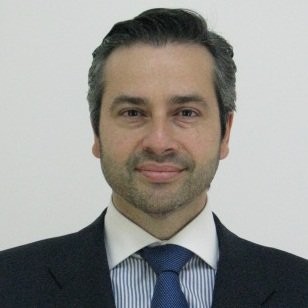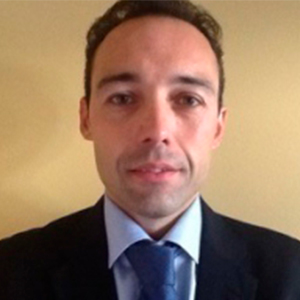Master in International Business
Learn how to manage Global Operations in International Markets with our Master in International Business [MIB]
Our Master in International Business is designed to give you a deep understanding of the drivers of globalization, the process of internationalization, how the global economic environment influences firms’ competitive responses, and how the world is interconnected. This program prepares you to deal with the challenges of expanding a business into new global markets along with those of managing teams across cultures and continents.
Master Degree from ESIC University
"Upon successfully completing the program, you will earn the Master of Lifelong Learning title in International Business, issued by ESIC University*. This master's degree is not official and does not qualify you for doctoral programs.
*ESIC University is officially recognized by the Spanish Ministry of Education and awards official university degrees, including bachelor's, master's, and doctoral degrees, as well as its own master's degree in continuing education. Both types of degrees carry the same rigor and prestige as those from ESIC University."
- Executive
- Executive
Language:
EnglishOn campus
Campus
- Valencia
- Sevilla
WHY STUDY INTERNATIONAL BUSINESS?
Currently, world business today requires working across countries and cultures, and it is a necessity for most firms today to have people with the skills and knowledge that allow them to compete globally. This fact opens doors for many potential students for international business, thanks to the growing need for people with the know-how for operating on a global scale:
EMPLOYABILITY
Since there are various profiles and ways for international business students to explore, one also widens their career options and job prospects.
WORK ACROSS INTERNATIONAL BOUNDARIES AND CULTURES
How to manage diverse teams, research international markets, and competition, or find new suppliers for your business.
BUILD YOUR BUSINESS KNOWLEDGE
And learn how to improve financial performance, redesign business processes, or solve commercial challenges whilst developing your skills through modules in key areas.
Why ESIC?
At ESIC we know that doing is the best way of learning. Our programme design is based on pragmatic components like tools, workshops, real-world cases, and the deployment of licenses so that you can access the labour market with the best possible preparation. Our Master's Degree in International Business approach stands out for its many advantages :
+25 years program in all of Spain
+62,000 alumni = Network
+2,500 alumni in international business
International experience
Job bank
ESIC Play, ICEMD, debates, activities, Tech Lab
20% of total program operations based
Best faculty in its class
Delivers the best vision and knowledge of global markets and business
Possibility to continue in a foreign university once finished
+25 years program in all of Spain
+62,000 alumni = Network
+2,500 alumni in international business
International experience
Job bank
ESIC Play, ICEMD, debates, activities, Tech Lab
20% of total program operations based
Best faculty in its class
Delivers the best vision and knowledge of global markets and business
Possibility to continue in a foreign university once finished
Rankings
We are proud of the national and international recognition of our programs. We are even prouder of the people who make ESIC one of the best institutions in the world. The quality of the teaching staff, employers and, above all, our students’ and alumni’s desire to excel, make ESIC and our Master´s Degree in International Trade & Business stand out with the following recognitions:
#2
SPAIN
Based on the academic structure of the program.

#4
EUROPE
Based on the reputation, the quality of the academic structure or the innovation in the way of teaching.

ESIC ACCREDITATIONS
More than 55 years of history means that we have institutional agreements and collaborations that recognise our quality as a business school. These are our accreditations:
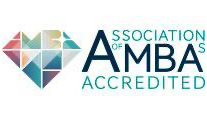
ASSOCIATION OF MBAS
The international impartial authority
on postgraduate business education
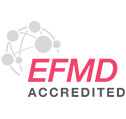
EFMD Programme Accreditation
The leading international system of quality assessment,
improvement and accreditation of business programmes

Agencia Nacional de Evaluación de la Calidad y Acreditación
Sistemas de Garantía de Calidad de Centros y Docencia

ASSOCIATION OF MBAS
The international impartial authority
on postgraduate business education

EFMD Programme Accreditation
The leading international system of quality assessment,
improvement and accreditation of business programmes

Agencia Nacional de Evaluación de la Calidad y Acreditación
Sistemas de Garantía de Calidad de Centros y Docencia
OUR STUDENTS
4% of our MIB students work outside Europe
96% of our MIB students work in Europe
71% of our MIB students have a junior-mid profile
29% of our MIB students have a senior profile
STUDENT’S PROFILE, WHO IS THIS MASTER FOR?
The MIB is specifically designed for professionals and graduates who, while coming from different backgrounds, have the common goal of developing their competencies in the international arena. Whether you are a seasoned manager who wants to expand personal capacities in the globalized world, or an entrepreneur that considers that acquiring expertise and knowledge in the international market will clear the path for future opportunities, the MIB strives to deliver the best in its class content for anyone interested in learning how to succeed in international business.

Objectives Master Degree in International Business
You will acquire the perspective on the nature of foreign trade, competitiveness and you’ll obtain the competencies to evaluate the complexity of the global business environment by mastering analytical tools for solid decision-making processes.
You will be able to develop advanced skills in managing new business models in global scenarios, and understanding the entire supply chain, from complex financial situations to SCM management.
You will be able to broaden and shape the capabilities and resources of business managers in the global business environment, providing them with the knowledge and skills demanded by modern international business organizations.
You will be prepared to face and learn how to solve complex situations in a systematic fashion in volatile and global scenarios.
You will adapt and properly operate in any business environment, or international context.
ACADEMIC STRUCTURE
Our master´s degree covers several strategic, tactical, and operational concepts used in streamlining global trade. Within the program, we focus on understanding when and how these concepts are applied, as well as on optimization methods for their adequate development.
In this module, you will learn to develop a strategic vision for ethical and sustainable decision-making related to where and how to compete, who is the target consumer or supplier, what business model we want to implement, and how we want to position ourselves to capture and generate value for the share and stakeholders and the society. All this is based on innovation, methodologies, and practical strategic tools, the knowledge and use of data, and lastly, a clear focus on the sustainability and profitability of the chosen approach:
- Macroeconomy
- Business strategy
- Business Ethics and sustainability
- Entrepreneurship
- SME & Globalization Business strategy
Within the finance module, you will be able to understand the basic finances, the P&L, and the balance sheet importance, the financial sources, the payment methods on international markets, and the financial risks to name a few. The unit delivers a holistic perspective of the financial management of the international trade.
- Financial analysis
- Business Analytics
- Financial Risk Management
In this module, you will learn to identify, create, and implement the necessary plans to generate value derived from the strategy defined in the Global Management module. You will start with the definition of international marketing and commercial plans, the forecast of demand, and the quantification of commercial objectives in a particular selected market, which will be supported in the decisions and plans about products, services, prices, customer experience, channels, communication, and actions to generate this demand.
- Markets research
- Developed and emerging countries' strategy
- Markets selection
- Business Plan
Once we have defined our strategy and the market, it is time to put it into practice and move into an operational stage that allows us to comfortably operate with other stakeholders, like suppliers or customers in terms of contract preparations, terms of sale, Incoterms®, logistics conditions or relevant paperwork to name a few. In other words, operations and the management of this discipline is the area of business concerned, with the delivery of the value the company promised and compromised to their customers and encompasses many activities.
- Global Supply Chain
- Inventory management.
- Trae policy and legal regulations
- International purchasing and procurement
- International Operations Management
For better professional development or to be able to grow and reach management positions, it is essential that you acquire a series of skills that ultimately determine the best candidate in a selection process or internal promotions. These skills are today the most sought after by companies regardless of their size and the sector in which they are located.
All the subjects and workshops within this module are taught throughout the entire program so that you can put into practice the skills that are developed with your classmates, teachers, or in your company.
- Negotiation skills
- Cross-cultural negotiations
- Communication and leadership
- Critical thinking
*Academic Structure subject to change. All programs are FACE-TO-FACE but Business Reality Webinars may be held outside of class hours.
PRACTICAL ACTION

Group cases
Throughout the master's degree, students will work in groups on four practical cases that encompass real situations that involve various subjects on the agenda. Students must carry out a diagnostic phase to then make decisions based on the challenge posed by the teachers. The evaluation of these cases will be carried out by delivering a document and defending it in front of the teacher.
TEACHING METHOD
TRANSFORMATIVE LEARNING BY ESIC
TRANSFORMATIVE LEARNING BY ESIC
It is an innovative training ecosystem that helps you to deploy your talent to the maximum and thus develop professionally and personally. On your journey of personal transformation, you will interact with five pillars of support, which will underpin your learning experience:
- Business reality, brought into the classroom through case studies and practical activities.
- The Soft Skills that are fundamental for your personal and professional development.
- An expert teaching and business faculty.
- A heterogeneous community of national and international students.
- All the different areas and services that ESIC puts at your disposal.
The Transformative Learning teaching method helps you by implementing innovative active learning methodologies where the teacher puts you at the centre of the learning process and guides you towards academic excellence. The aim is for you to acquire skills through the practical application of knowledge and tools.
The resources you will have at your disposal are:
- Asynchronous support materials, videos, readings, etc.
- Self-assessment.
- Tutored application and feedback.
- Practical and experiential activities.
- Assessment system that combines demonstration of individual and group achievements.
- Tutored final project.
FACULTY AND GUEST SPEAKERS
La esencia de nuestro programa reside en un excepcional claustro de profesores. Nuestro claustro está compuesto por destacados profesionales y académicos con una vasta experiencia en el ámbito del marketing y las ventas. Estos expertos combinan su profundo conocimiento teórico con una sólida experiencia práctica, ofreciendo a los estudiantes una perspectiva única y valiosa. Además, muchos de nuestros profesores ocupan posiciones de liderazgo en empresas de renombre, lo que garantiza una conexión directa con las últimas tendencias y prácticas del sector.

Francisco González López
Programme Director
*Faculty and guest speakers are subject to change.
Employability
86%
of our students are working in the sector one year after completing the program.
+3.700
internship offers generated through our professional development unit.
+2.200
job offers processed by our UDP.
CAREER OPPORTUNITIES
At ESIC we provide rigorous training, and its design reflects the view that offers the best training for students who want to pursue careers in the international business environment, delivering comprehensive preparation in all aspects as theoretical modeling, quantitative and empirical analysis.
Within this ecosystem, you are in the position to decide whether to pursue your own path in an entrepreneurship venture or find a position in a private international organization, government agencies, central banks, financial institutions, research, and consulting firms, trading companies, manufacturers, logistics and transport firms, export & import business, or NGOs:
- International consultant
- International marketing director and manager
- Export or import manager
- International purchasing director and manager
- Business development
- International trade specialist
- Logistics operations specialist
- Export credit risks manager
- Sales manager
- Sales director
WHERE DO OUR STUDENTS WORK?

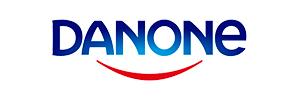



UDP – PROFESSIONAL DEVELOPMENT UNIT

ESIC's Professional Development Unit is made up of a team of professionals dedicated to promoting your professional career, whether you are studying in the classroom or as an Alumni. You can count on the UDP if you need to enter the world of work, as they have their own employment site, although they also collaborate with international sites, fairs and career events.
With almost 4,000 work placement offers and more than 2,000 job offers, the UDP has an overall employability rate of 95% for students in the Marketing and Sales area and 100% in the communication area, among others.
INTERNSHIP AND COLLABORATING COMPANIES
In the master's degree program, you will be in constant contact with working professionals from pioneering companies, either through workshops or interventions in the program. In addition, if you are looking to complete your training with internships, ESIC offers the possibility of contacting top companies in the sector. Among them we highlight:
Non Curricular International Stay
You can take an optional international experience that complements your studies with an immersion into the world of international business. Explore new cultures while gaining practical knowledge and building a global network. Transform your learning and open doors to unique personal and professional opportunities.
“Understanding today´s business environment” | 1 week
The course "Understanding Today's Business Environment" at Georgetown offers an in-depth exploration of the key issues influencing the contemporary business environment. Designed for professionals seeking to understand the challenges and opportunities in today's business world, this course provides a comprehensive view of the economic, technological, social and political factors that shape business strategies today.
In this international experience you will learn about the milestones of American culture and current trends in global business management, understand the challenges of a globalised economy and how financial policy underpins it. You will explore the role of artificial intelligence in international business and experience how international financial institutions impact the organic and acquisitive growth trajectories of the modern enterprise.
*Places subject to availability. Non Curricular International Stay delivered 100% in English. The cost of the Non Curricular International Stay is not included in the program.
“ESG in the new business era” | 1 week
During a week-long academic, cultural and corporate experience, you will have the opportunity to delve into the impact of ESG on today's global business agenda. ESG means using environmental, social and governance factors to assess the sustainability of companies and countries. These three factors are considered to best embody the three major challenges facing business and society at large, which now encompass climate change, human rights and legal compliance.
Starting from the broad context of what ESG represents for corporations, customers, financial institutions and investors, the programme covers everything from the strategic perspective of companies incorporating ESG and sustainability, the internal and external communication of ESG commitment and progress, to how corporate policies are defined and led for the company to generate a positive impact in a circular global economy.
With this international experience you will understand the global context of ESG and how it differs from the corporate sustainability concept, learn to synthesise how business strategy incorporates an ESG-oriented vision and mission. You will be able to define and implement a strategy for internal and external communication of ESG efforts and explore how corporate leadership is put at the service of ESG and sustainability policies.
*Places subject to availability. Non Curricular International Stay delivered 100% in English. The cost of the Non Curricular International Stay is not included in the program.
“Digital Innovation and Transformation: Estonia’s path to the Future” | 1 week
Estonia's path to the Future is an intensive one-week programme designed to explore the latest trends, tools and strategies in the field of digital innovation in a technologically vibrant environment. This small Baltic country with just over one million inhabitants decided to take the digital leap and today it has become the example to follow for the digital transformation of Europe. During this week, you will have the opportunity to immerse yourself in various aspects of digital transformation, from the conceptualisation of innovative ideas to the practical implementation of technological solutions based on visits to Start Ups and academic sessions with experts.
In this international experience you will understand the fundamentals of digital innovation and its impact on business and society, explore emerging technologies and their application in problem solving, develop practical skills for the generation and execution of innovative ideas with Start Ups and incubators, and become familiar with agile methodologies and user-centered design approaches. Additionally, you will learn to assess the potential market and feasibility of digital innovations.
*Places subject to availability. Non Curricular International Stay delivered 100% in English. The cost of the Non Curricular International Stay is not included in the program.
CAMPUS and PRICES
Master's Degree in International Business in Valencia
ESIC Valencia offers master’s degrees and postgraduate courses specializing in business management, marketing, digital business, technology, international business, human resources and, of course, our Master’s in International Business in Valencia. Every year more than 1000 national and international students choose to study at our Valencia campus to train to become the leaders of tomorrow.
Master's Degree in International Business in Sevilla
Parque Científico y Tecnológico Cartuja (PTC), our classrooms have more than 25 years of history. A space of innovation where you can study master's or postgraduate programs in a technological and cutting-edge environment, so that you can prepare yourself for the challenges of a changing and highly competitive environment.
ADMISSION PROCESS
We accompany you throughout the whole process, guiding and advising you so that you choose the best option for your professional career. These are the steps to follow:
1 APPLICATION
- You request information through our form.
- An advisor will contact you in the following 24-48 hours.
- You have a first contact call and a consultancy meeting is convened for questions and doubts.
- You have a second call where all your doubts are solved, and you are guided in everything you need.
2 DOCUMENTATION
- If the programme meets your needs, you proceed to apply.
- Prepare the necessary documentation (such as university degree or certificates).
- Conduct a personal and professional essay.
- You hand in all documentation.
3 INTERVIEW
- Once the documentation is approved, you are scheduled for an interview with the program director.
- At this interview, you will be able to discuss any specifics you want to know about the program, as well as any questions you may have.
4 ENROLMENT
- After the interview, your advisor will contact you within 24-48 hours to notify you if you have been accepted into the program.
- Once you have been accepted, you have about 5 days to formalise your enrolment.
- Once the enrolment is complete, you will be given all your access (virtual classroom, e-mail...).
- Of course, our last step is always to congratulate you and to wish you the best for your studies.
 SCHOLARSHIPS AND STUDY GRANTS
SCHOLARSHIPS AND STUDY GRANTS
We do not want economic issues to be an obstacle for you to reach your objectives and ensure a training with a future. Therefore, we present you with a wide range of possibilities that will help you in this sense, both the Scholarship Plan that we have developed at ESIC, as well as those that are available to you from different public and private organisations. The scholarships and grants available are as follows:
- • In-house scholarships
- • National scholarships
- • International scholarships
- • Mobility grants for international internships
- • Insurance and financial aid
 FINANCING
FINANCING
ESIC has financing agreements with certain banks with preferential conditions for students enrolled in any of the school's programs. The specific rules and conditions of each of these agreements can be found in the Secretary's Office. ESIC helps you with the financing of your degree.
If you live outside one of the cities where ESIC has a campus and you are looking for accommodation, we recommend a series of companies and residences dedicated to student accommodation. Find the one that best suits your needs.
More information
ESIC has partnered with the Flywire platform to accept payments from foreign students from all over the world. You can pay easily and securely in your own currency, using local payment methods from the safety and comfort of your own home. You will have real-time monitoring and multilingual support around the clock.
Más informaciónFREQUENTLY ASKED QUESTIONS
Study grants will be communicated to you during the selection process. Our grants are adapted to each profile and date of enrolment. In addition, you can find out about the grants that ESIC offers as well as those offered by other public and private organisations.
Yes, there is a percentage of compulsory attendance in the face-to-face masters. However, you may have a small percentage of unjustified absences.
OTHER PROGRAMS THAT MAY INTEREST YOU
MÁSTER EN LOGÍSTICA, TRANSPORTE Y CADENA DE SUMINISTRO
The LOCS helps you carry out excellent supply chain management, from supply until the consumer buys or consumes the product.
More informationMASTER IN DIGITAL MARKETING (ENGLISH VERSION)
The MDM is an innovative program that is studied 100% in English so that you can strengthen your professional career with an international perspective.
More informationMaster in Marketing Management
The MMM is designed to give you a deep understanding of the drivers of marketing and commercial globalization, the internationalization of strategies and tactics.
More information


